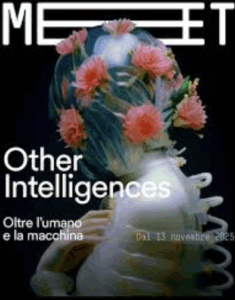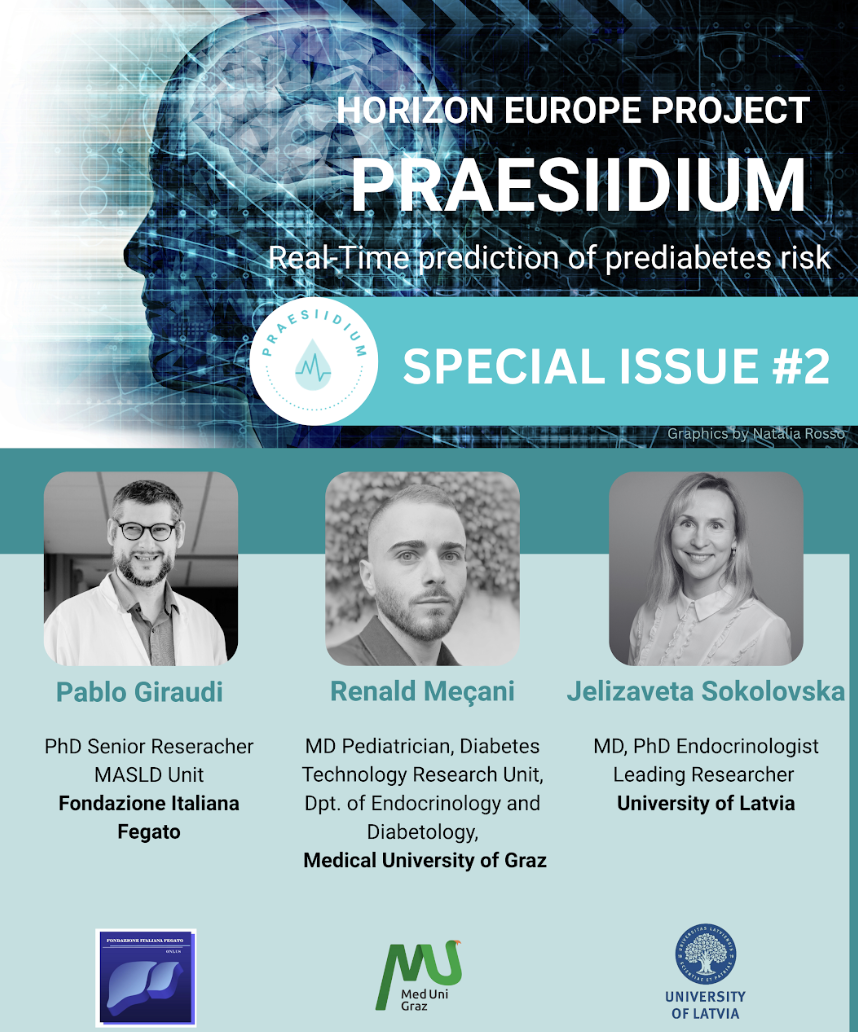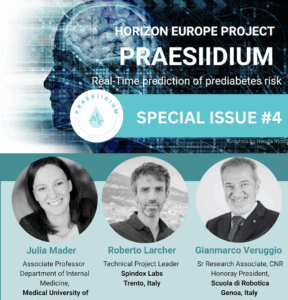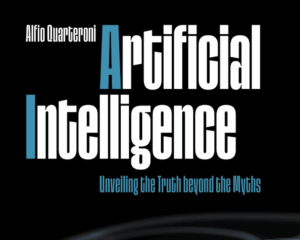How do clinicians and researchers address the growing need to integrate Artificial Intelligence (AI) and machine learning tools into the management of type 2 diabetes? How does clinical practice change when working side by side with computer scientists, technologists and AI specialists in an increasingly data-driven healthcare context, where data collection, selection and analysis becomes central?
The second Special issue of this series is dedicated to the story of three experts involved in the European project PRAESIIDIUM, who deal with type 2 diabetes on a daily basis both in clinical practice and in research, actively collaborating with professionals from the technological and computational world. At the center of their reflection, there is the need for earlier diagnosis: detecting pre-diabetes and its risk at an early stage enables timely intervention and more effective prevention strategies, acting when the risk is only beginning to emerge, before the condition fully develops.
Currently, clinicians lack reliable predictive tools to determine, based on available clinical data, who is likely to develop pre-diabetes within the next five to ten years. However, emerging predictive technologies, such as biomarker analysis, are paving the way for earlier and more accurate diagnostics. The added value of the PRAESIIDIUM project lies in its integration of multimodal data: beyond traditional clinical parameters, it incorporates information from wearable devices, continuous glucose monitoring (CGM) systems, physical activity levels, dietary habits, and more. Equally important for clinicians is the availability of advanced predictive models that can assess the effectiveness of therapeutic recommendations and lifestyle modifications, offering valuable feedback on patient progress and treatment impact.
The Special 2 Authors.
Pablo Giraudi is a researcher at the Italian Liver Foundation (FIF), a research institute recognized by the Italian Ministry of University and Research (MUR) and founded in 2008 by Prof. Claudio Tiribelli. Dr. Giraudi’s work focuses on identifying novel inflammatory biomarkers associated with the progression of pre-diabetes, particularly in relation to the liver, one of the organs most affected by complications linked to type 2 diabetes. Within the PRAESIIDIUM project, his research also includes in silico analysis of datasets and experimental proteomics. A key component of this work involves collecting biological samples, such as blood, liver tissue, and visceral adipose tissue, from patients with severe obesity undergoing bariatric surgery. These samples are used to identify early markers of inflammation and investigate its origin through detailed histopathological analysis.
Jelizaveta Sokolovska, an endocrinologist and research group leader at the University of Latvia in Riga, leads a data collection study involving individuals who are overweight or have first-degree obesity, but who show no clinical signs of impaired glucose metabolism. Her laboratory, which focuses on personalized medicine for metabolic disorders and diabetes-related complications, has recently expanded its scope to include the prevention and early detection of pre-diabetes. Through collaboration with developers of predictive technologies and models within the PRAESIIDIUM project, new opportunities have emerged to enhance personalized and proactive strategies for managing diabetes risk.
Renald Mecani a pediatrician by training and PhD student at the Medical University of Graz (Austria), conducts research in the diabetes technology unit led by Prof. Julia K. Mader. Within the PRAESIIDIUM project, Dr. Mecani is involved in a study focusing on a group of healthy individuals, some of whom have a family history of type 2 diabetes and are motivated to assess their risk and monitor their health proactively. He and his team are mindful of the potential recruitment bias common in clinical trials, where participants with greater health awareness or concerns (particularly those with a familial predisposition) are more likely to enroll, often bringing specific anxieties and expectations regarding the outcomes.
PRAESIIDIUM Special Issue 2 here PRAESIIDIUM Special 2 – ENG







